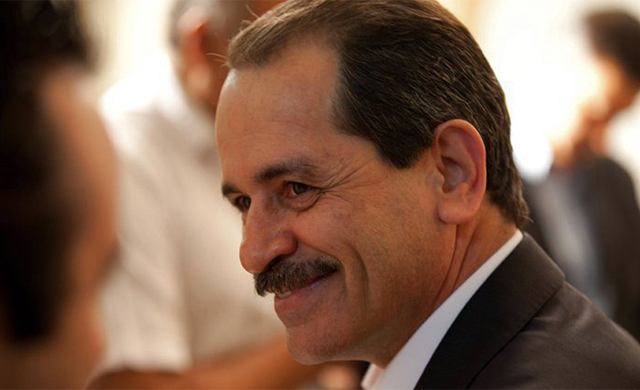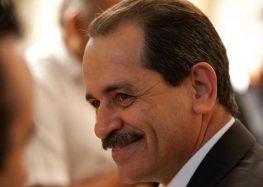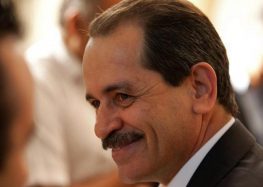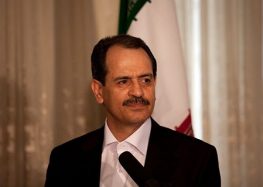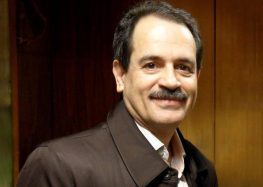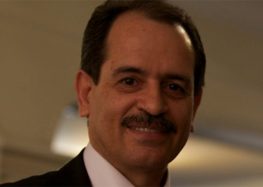Imprisoned Spiritual Leader Slapped with New Charges Upon Completing Sentence
Mohammad Ali Taheri, an imprisoned spiritual leader who was supposed to be freed more than two months ago after completing a five-year prison sentence, has again been charged with “corruption on earth,” as well as membership in a banned militant Marxist organization.
His sister told the International Campaign for Human Rights in Iran that the charges have not been formally submitted to the Supreme Court, which last year rejected the death sentence against Mohammad Ali Taheri for “corruption on earth.”
“We believe the charge of ‘corruption on earth’ is completely false and we were hoping it would never be brought up again,” said Azardokht Taheri. “It’s very strange and worrying that the interrogator told my brother that the issues in his case have not been resolved and would be sent to the [Supreme] Court again.”
“We’re worried about him now more than any other time,” she added. “His lawyers say he was supposed to have been freed by now but [the authorities] have invented new charges against him and insist on holding him under temporary detention.”
The new charge alleges that Mohammad Ali Taheri is a member of the People’s Fadai Guerrilla Organization of Iran (PFGOI), a banned Marxist group that was most active in the late 1970s. Many of its leaders and members were executed after Iran’s 1979 revolution.
“My brother has rejected this invented charge… They just want to hold on to him,” said Azardokht Taheri.
Judge Abolqasem Salavati of Branch 15 of the Revolutionary Court signed an order to extend Mohammad Ali Taheri’s temporary detention on May 2, 2016.
“We really don’t know what their problem with him is,” Azardokht Taheri told the Campaign. “Why are they making up new charges against him when he has already spent five years in prison? Why do they insist on hanging him?”
“We want the Judiciary to make an independent ruling without interference from the security organizations,” she said. “Keeping him in prison is unlawful and a blatant violation of human rights.”
“Mr. Taheri’s prison sentence ended on February 7 [2016]. His 900 million toman ($300,000 USD) fine has also been paid,” added Azardokht Taheri. “The Supreme Court struck down the death sentence against him as well. Then he should have been freed. But instead his detention is being extended.”
Azardokht Taheri said that when her brother’s interrogation resumed in Tehran’s Evin Prison on April 12, 2016, he was told that he had been sued by 130 of his former students for “deception” and that two unnamed individuals had also accused him of membership in the PFGOI.
“These accusations are not true at all,” she said. “During the [Iran-Iraq War] (1980-88) my brother helped with the [Iranian] army’s weapons production and his services were noted in [former President] Akbar Hashemi Rafsanjani’s memoir.”
“My mother’s wish is to see her son, or hear his voice, one more time and tell him she loves him. She has spoken to him only once on the phone since he was arrested and that was in March 2013,” said Azardokht Taheri.
“Unfortunately, she [lives abroad and] cannot travel to Iran because she’s too old and suffering from several ailments. The least we can ask is to let my brother talk to our mother on the phone.”
Mohammad Ali Taheri, 60, established the Erfan-e Halgheh (Spiritual Circle) Institute in Tehran during the 2000s and taught alternative therapies at Tehran University.
He was arrested on May 4, 2010 and charged with “insulting the sacred,” “immoral contact with women” and “carrying out illegal medical procedures.” He was sentenced to five years in prison along with 74 lashes and fined nine billion rials ($300,000 USD).
Mohammad Ali Taheri was again interrogated about his books, for which he had been accused of blasphemy, four years later and sentenced to death for the charge of spreading “corruption on earth,” but the Supreme Court overturned the sentence in December 2015.
Iran’s security establishment has come down hard on Taheri and supporters of the Erfan-e Halgheh spiritual group, viewing it and any other alternative belief system, especially those seeking converts, as a threat to the prevailing Shia order.

